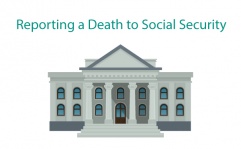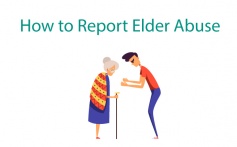.jpg)
how to prepare your estate planning
It can be challenging to know where to begin when you're handling a loved one's financial affairs. Dealing with finances can feel overwhelming. We are here to make the process of transitioning accounts as simple as possible.
Every situation is unique, so you may also wish to reach out to a lawyer, tax professional, or trusted advisor for assistance.

1. Prior to death - review and update account setup.
Current members should review and keep updated the beneficiaries listed on each of their accounts at the Credit Union. If your beneficiaries are not already members of IDB Global Federal Credit Union, encourage them, if eligible, to open an account so that funds can be transferred upon death.
- It is important to note; beneficiaries are account associated, not member associated. Thus, beneficiaries need to be added to each account individually.
- To open an estate account in the future, the executor of a member's estate may wish to open an account at the Credit Union (if eligible) previous to a member's passing.
2. after death - notify credit union
If you are handling the financial affairs for a Credit Union member who has passed, please contact the Credit Union utilizing one of the following methods.
- Form: Fill out the form in the green column to the left
- Phone: 202-623-3363
- Email Us
- Mail: IDB Global Federal Credit Union, 1300 New York Ave., N.W. Washington D.C. 20577
Please note that the Credit Union and the Inter-American Development Bank are separate legal entities, and that the Credit Union must be notified of the account holder's death separately from the Bank.
You will be asked to provide a death certificate (English or Spanish).
3. AFTER DEATH - Disbursement of funds
After the death of a member, the disbursement of funds varies based on the set up of each of the member’s accounts. If you are not sure how an account is set up or have other questions, please contact the Credit Union utilizing one of the following methods:
- Form: Fill out the form in the green column to the left
- Phone: 202-623-3363
- Email Us
- Mail: IDB Global Federal Credit Union, 1300 New York Ave., N.W. Washington D.C. 20577
A. SOLE ACCOUNT WITH BENEFICIARIES LISTED.
Typically, a hospital or funeral home will notify the Social Security Administration (see link for more info.)
- Any government benefits for the deceased, such as Social Security, will stop and/or be returned.
- If an account is individually owned, the Credit Union is required to freeze the funds in the account upon receiving notice of the owner’s death. Any checks that have not yet cleared are returned, and all automatic withdrawals are rejected.
Prior to disbursing funds, the Credit Union needs:
- Death Certificate (English or Spanish)
- Valid government-issued photo Identification for each beneficiary
- Proper written instructions by the beneficiary for the distribution of funds (An internal transfer to another Credit Union account or a Cashier’s check are available). After the Credit Union has received all necessary documents, the funds will usually be released within 10-15 business days.
B. joint account with or without beneficiaries listed
Typically, a hospital or funeral home will notify the Social Security Administration (see link for more info.)
- Any government benefits for the deceased, such as Social Security, will stop and/or be returned.
- If the account is held in joint ownership, the deceased member will need to be removed from the account. The joint owner would become the sole Primary owner, having complete transaction authority on the account. A new Member Services Form requesting removal of the decedent will need to be completed and signed by the remaining Primary owner of the account. Please contact our Member Services line at 202-623-3363 for more information regarding the form.
- Once the Member Services Form has been submitted, the account will remain open under the sole account owner. Please destroy checks issued under both names; new checks under the sole account owner can be requested.
- Beneficiaries (Payable On Death) do not supersede the right of survivorship granted to Joint Owner/s.
C. Sole Account without beneficiaries listed & MEMBER was a U.S. CITIZEN or permanent resident
Typically, a hospital or funeral home will notify the Social Security Administration (see link for more info.)
- Any government benefits for the deceased, such as Social Security, will stop and/or be returned.
- If an account is individually owned, the Credit Union is required to freeze the funds in the account upon receiving notice of the owner’s death. Any checks that have not yet cleared are returned, and all automatic withdrawals are rejected.
- The probate court will issue a document appointing an “executor” or “personal representative “(the terms vary by jurisdiction). When the executor presents the appointment document to the Credit Union, funds in the deceased member’s account are released to the executor.
Prior to disbursing funds, the Credit Union needs:
- Death Certificate
- Estate Letters of Administration
- IRS EIN form for the Estate- How to Apply for an EIN | Internal Revenue Service (irs.gov)
- Valid government-issued photo Identification for the Executor. After the Credit Union receives all necessary documents, the funds will usually be released within 10-15 business days. At that point it is the executor’s responsibility to distribute the assets of the estate.
D. Sole Account without beneficiaries listed & MEMBER was NOT a U.S. CITIZEN or permanent resident
Typically, a hospital or funeral home will notify the Social Security Administration (see link for more info.)
- Any government benefits for the deceased, such as Social Security, will stop and/or be returned.
- If an account is individually owned, the Credit Union is required to freeze the funds in the account upon receiving notice of the owner’s death. Any checks that have not yet cleared are returned, and all automatic withdrawals are rejected.
- The person appointed personal representative (executor) in another jurisdiction (country) must file the documents required to open a foreign estate proceeding in the District of Columbia before the person will have authority to collect and distribute any assets located in Washington D.C.
- These documents must be notarized at a U.S. Embassy or Consulate- Notarial and Authentication Services of U.S. Consular Officers Abroad (state.gov)
Prior to disbursing funds, the Credit Union needs:
- Death Certificate
- Valid government-issued photo Identification for the Executor
- Estate Letters of Administration
After the Credit Union receives all necessary documents, the funds will usually be released within 10-15 business days. At that point it is the Executor’s responsibility to distribute the assets of the estate.

Additional notes:
- For Estate Tax purposes - If the date-of-death value of the decedent’s U.S.-situated assets, together with the gift tax specific exemption and the amount of the adjusted taxable gifts, exceeds the filing threshold of $60,000, then the executor must file a Form 706-NA for the decedent’s estate. The filing threshold for Form 706-NA is not indexed for inflation. See the IRS Instructions for Form 706-NA for additional information on the gift tax specific exemption and the amount of adjusted taxable gifts.
- Additionally, tax treaties between the U.S. and more than 15 foreign countries can play a part in determining breaks in tax rates, domicile definitions, and additional deductions. A nonresident alien who is a domiciliary of one of the treaty nations may attain great benefits through these estate and gift tax treaties. For more information please visit the IRS website or consult an attorney or tax advisor.






